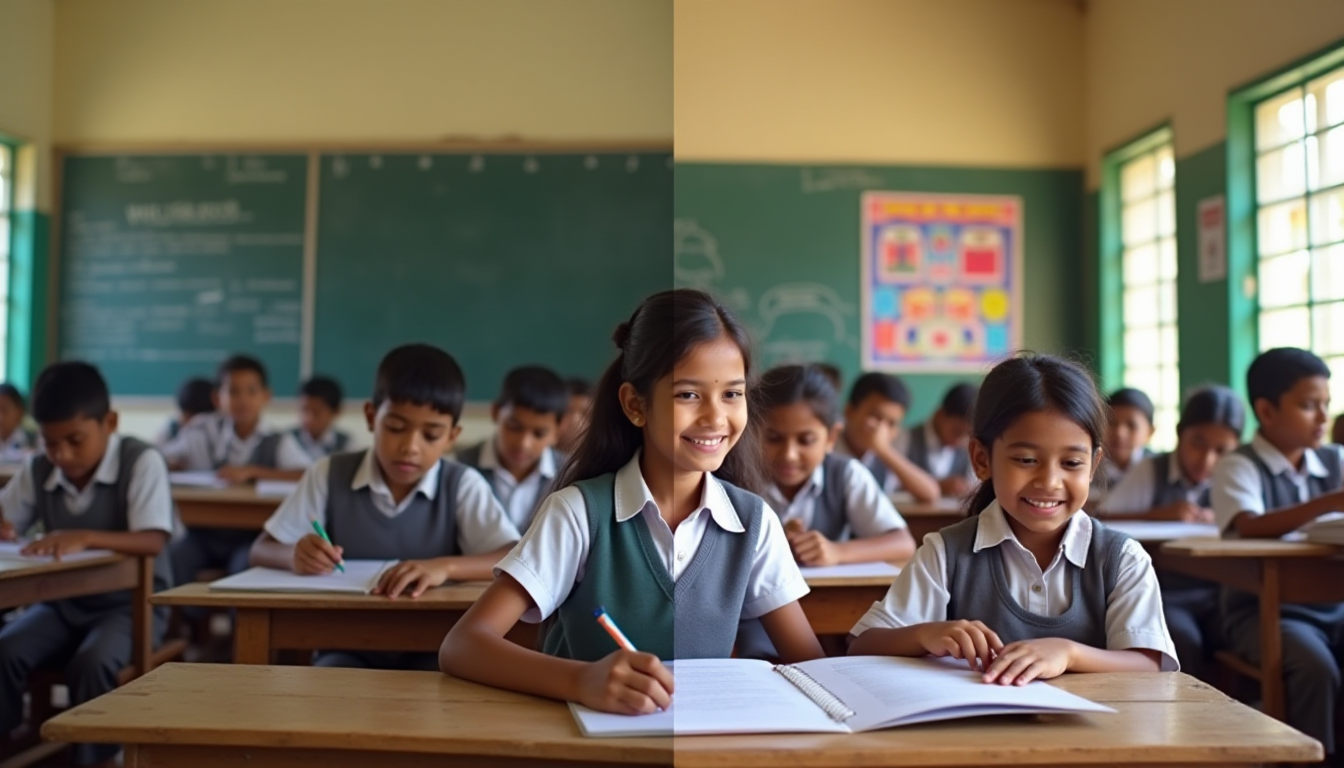Beyond the Screen: Guiding Our Kids from Digital Tourists to Digital Citizens

It’s 5:42 PM on a Saturday evening in Varanasi, and in homes across Bharat, a familiar scene is playing out. A child is effortlessly navigating a smartphone, swiping through Instagram Reels, finding a specific YouTube video in seconds, and downloading a new game. We watch them, a mix of awe and pride in our hearts, and think, “They are true digital natives. They were born for this.”
Our children’s fluency with digital devices is indeed remarkable. But as we look towards their future, we must ask a deeper question: Is being a fluent user of apps the same as being digitally wise? Is being a master consumer of online content the same as being a master of technology?
The truth is, our children’s comfort with screens doesn't automatically grant them the critical skills needed to thrive in the digital world. The good news is that we, as parents and educators, have a golden opportunity to guide them beyond passive scrolling and help them become confident, creative, and thoughtful digital citizens.
The Myth of the 'Digital Native'
Let’s reframe how we see our children’s relationship with technology. Their ability to use apps is like knowing how to order a few dishes in a foreign country—it’s useful, but it doesn't mean they speak the language fluently. They know the interface, but not necessarily the system running underneath.
While they can spot a viral trend from a mile away, they often struggle with the hidden challenges of the digital world:
- Spotting Misinformation: How do they tell the difference between a real news story and a fake WhatsApp forward designed to provoke anger?
- Understanding Algorithms: Why does YouTube keep showing them the same type of videos? Who decides what appears first in their feed?
- Managing Attention: How do they focus on their homework when their phone is buzzing with notifications designed by experts to be irresistible?
Our children aren't born with these skills. They need to be taught, just like reading, writing, and mathematics.
Beyond Asking AI for Homework
The excitement around Artificial Intelligence (AI) in India is huge, and many schools are rightly teaching students how to use tools like ChatGPT. Learning to write a good "prompt" to get information is a valuable skill. But it's only the first step.
True AI literacy isn't just about getting quick answers for a school project. It's about encouraging our kids to become critical thinkers who ask deeper questions:
- "Why did the AI give me this specific answer?"
- "What information might it be missing, or what biases might it have?"
- "Is this a task where I should use AI, or is it better to think for myself to truly learn?"
The goal is to raise creators and problem-solvers, not just sophisticated users of a question-answering machine.
From Consumers to Creators: The Real Power of Technology
The most incredible aspect of modern technology isn't what it lets us consume, but what it empowers us to create. Every smartphone is a potential movie studio, a music recording booth, and a design lab. This is where we can truly ignite our children's potential.
Let's shift the focus from consumption to creation.
- Instead of just watching YouTube videos, encourage them to create a short video explaining a science concept they learned in school.
- Instead of just scrolling through social media, ask them to design a digital poster for a school event or a family function.
- Instead of just playing games, introduce them to simple, free block-based coding apps so they can understand how games are made.
When children create, they are forced to think about audience, purpose, and impact. They move from being passive recipients of information to active participants in digital culture. This is how we cultivate the next generation of Indian innovators.
Our Mission: Building Wise Digital Citizens
Our role isn't to be fearful of technology, but to be wise guides. We can start by teaching a few core principles:
- Be a Digital Detective: In an age of deepfakes and misinformation, teach them the golden rule: verify before you trust. Encourage them to check information from at least two other sources before believing or sharing it.
- Understand Your Attention: Explain in simple terms that their attention is valuable. Many apps are designed to be addictive. The goal is to help them use technology with a purpose—to learn, create, or connect—rather than scrolling aimlessly.
- Embrace Digital Ethics: Have conversations about privacy, consent, and being kind online. A good digital citizen is a responsible and empathetic one.
Let’s move beyond the simple "digital native" label. Our children are not tourists in the digital world, passively observing what algorithms show them. With our guidance, they can become confident citizens who understand the landscape, build amazing things, and help shape the digital India of tomorrow.





